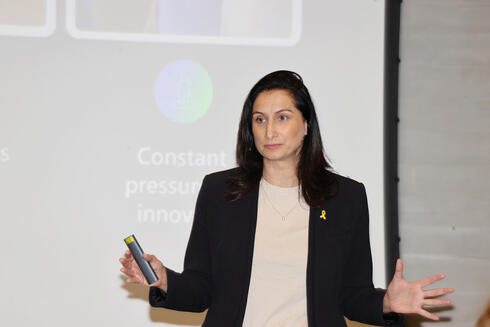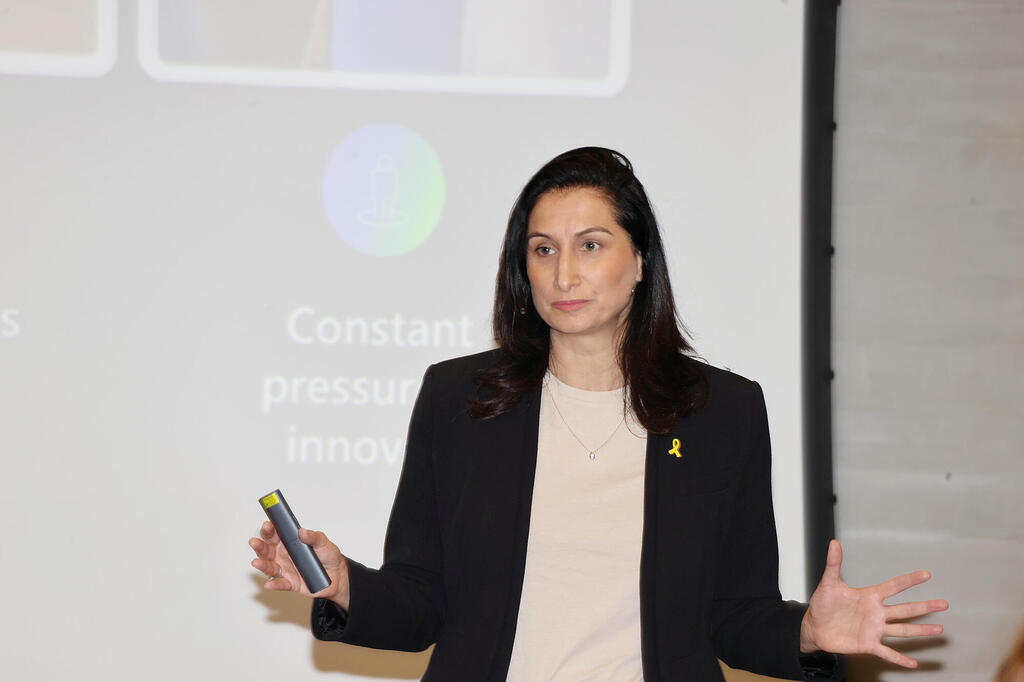
"Why shouldn’t a 9-year-old child leave the doctor's office with a summary that he can understand?"
Ruthy Kaidar, Microsoft’s Regional Leader for Healthcare, Health Providers and Payors for Europe, the Middle East and Africa, spoke at Calcalist and Microsoft’s AIsrael conference about the various uses of AI in global health systems.
"Imagine walking into your doctor's visit. There's no computer or keyboard, and you're just having a pleasant conversation with your doctor. Every visit is documented in real-time and entered into your medical record, and when you leave the room, you have a very clear summary with explanations of which tests you need to do, which medications you need to take, and suggestions for future appointments that you need to schedule. Sounds futuristic? That's what's happening today."
This is how Ruthy Kaidar, Microsoft’s Regional Leader for Healthcare, Health Providers and Payors for Europe, the MIddle East and Africa, described the effects of AI on the global healthcare system. In a presentation at Calcalist and Microsoft’s AIsrael conference, Keidar spoke about challenges facing healthcare systems around the world, and the solutions that artificial intelligence is already providing.
According to Kaidar, there is great demand for healthcare services worldwide: "Patients are coming in droves and seeking treatment, and this has only grown since the COVID-19 pandemic, while at the same time, the strain on the healthcare system is enormous. Doctors, nurses, - they're all overwhelmed."
Kaidar explained that "everyone ultimately wants to treat more people, but one of the difficulties is that 40-60% of medical work is actually administrative work. The additional challenge is data. There is a lot of data out there, there is a lot of data in systems which don't communicate with each other, and it's impossible to access them to make data-driven decisions. This data is our gold mine." According to Kaidar, "Everyone wants innovation. Doctors want it and patients want to get everything to their smartphones. The challenge is how to create an experience that is innovative and pleasant for all sectors."
Kaidar says that “data in healthcare is found in many places, and what is special about Generative AI is that it knows how to access data no matter what its format. The ability to access information, to collect and bring insights, whether it's structured or not and no matter where it's found, is amazing."
Kaidar brought several examples to her speech. "It's important to understand that AI can help everyone in your organization. So if we're talking about healthcare organizations, it can help doctors and nurses first and foremost. For example, a hospital in the United States can take the patient's data and every doctor will know exactly which tests the patient needs, instead of sending them for four different tests automatically, which has proven to be inefficient." According to Kaidar, at a hospital in Liverpool, nurses have a chatbot that guides and accompanies them step-by-step in the medical procedures they need to perform.
"AI also revolutionizes the patient discharge process. We know it's a process that sometimes takes hours. At Imperial College London, for example, they built a model that collects all the tests the patient does, the doctor goes over the system's insights, and that patient is discharged within minutes instead of hours."
Kaidar says that Microsoft is working with Sheba on a platform in the mental health field which identifies the immediate needs of the patient and provides them with a response, with a doctor making the final decision. "Why shouldn’t you leave the doctor's office with your 9-year-old son and a summary that he can understand?" she continues. "We know that patients who are more involved in treatment are more proactive and healthier."
Kaidar concluded her remarks and addressed the audience: "I want you to leave thinking about what you're going to do with Generative AI not tomorrow but today. Each one of you can use it within your organization. Think of it as a kind of personal assistant, a co-pilot who helps with administrative activities that you don't always want to do. Start identifying operational scenarios that you want to implement now."














